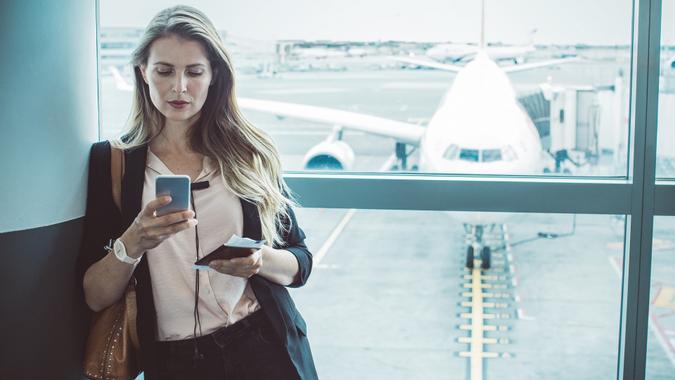
It used to be that you were locked into airfare when buying a plane ticket — and there would be hefty fees for any changes to your itinerary (up to $200 and the difference in fare, according to Thrifty Traveler). But then COVID changed all that. Airlines were forced to waive change fees and rebooking policies to allow flexibility for passengers who might have fallen ill or were not allowed to travel due to CDC guidelines.
Even as the pandemic eases with vaccinations readily available, these airfare policy changes seem to be sticking around as a way to further motivate people to travel again, especially as the airline industry struggles to recoup losses that have been in excess of $200 billion, according to Bloomberg.
Because of newer flexible booking policies, it’s actually advantageous to change your itinerary by tapping into price drops of ever fluctuating flights after you book your ticket. As Forbes noted, “Essentially, if the cost of a ticket drops compared to what you paid for it, you may be able to cancel and rebook at the lower price — locking in the difference as a credit toward future flights.”
First, it’s important to keep in mind that airlines rarely issue refunds in dollar amounts; when taking advantage of the cost-savings that may now come with rebooking flights, usually that will be provided as a credit or voucher for future travel. Still if you travel a lot, or book for a sizable family, this could add up.
Another important aspect to remember is now that nearly all airlines have instituted ticket tiers, usually non-standard and non-premium “economy” options will not allow changes at all. Forbes stated that Alaska Airlines, American Airlines, Delta and United all currently offer changes to main cabin and premium/business/first class cabins for no additional charge for U.S. flights (some, like American, even offer this on international routes originating in North and South America).
Even for budget airlines, Spirit offers no change fees up to 60 days before travel, noted Forbes, and Southwest has a completely flexible policy allowing alterations to itineraries at any time with no penalties.
If you do take advantage of price drop rebooking, know that the best time to “bargain shop” and get a good deal is around 5 a.m., and usually on Sundays according to Travel + Leisure. A survey by CheapAir.com also found that, on average, booking 64 dates in advance of domestic travel departures is the best time to get a deal.
Travel + Leisure, citing the survey, also qualified that pricing for flights is most expensive when they are first released to the public (generally a year in advance) and they go down up through 21 days prior to take off. The sweet spot, they said, is between 95 and 21 days before leaving town. After that, last-minute hikes come into play. So you might want to keep monitoring prices in that 3-month window and even use an app like Hopper that provides real-time alerts when there’s been a drop in price.
Just know, if you are rebooking a flight, there are usually terms to abide by — as Forbes noted, usually you’re only able to use the credits or vouchers within a year from when you booked the original flight. So, if you booked a flight in January 2022 but found a better deal in September, you’d only have a few months left to use the credits towards another flight. The article is quick to note, however, this is not the case with Southwest (where credits never expire) and Delta who has since allowed all credits to be used through the end of 2023.
























